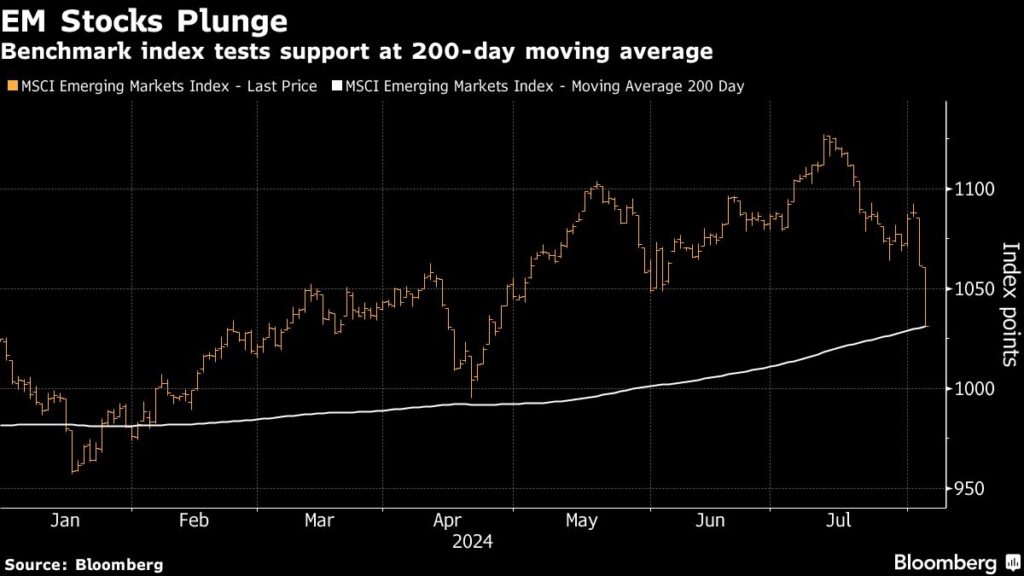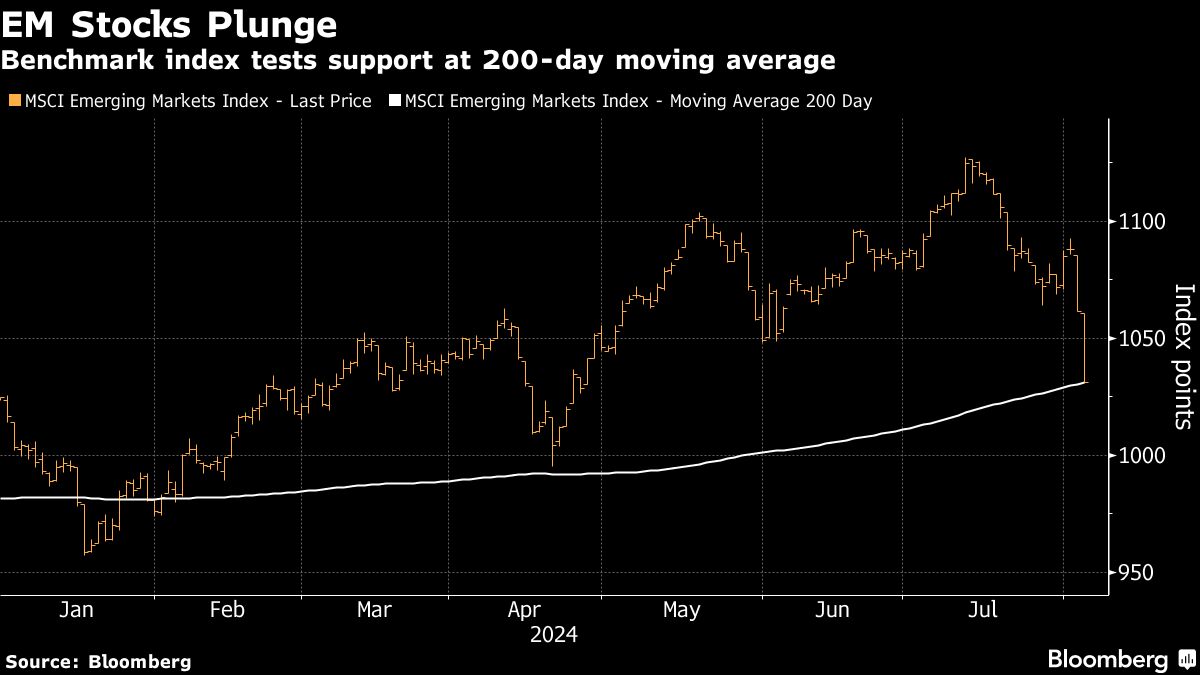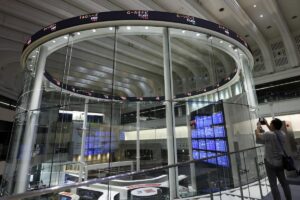Emerging Stocks Hit Worst Losses Since 2022 in Global Rout


(Bloomberg) — A global equity selloff gripped emerging markets Monday as shares in the technology hubs of Taiwan and South Korea plunged, leading the broad MSCI benchmark for the asset class down by the most in more than two years.
Most Read from Bloomberg
The MSCI Emerging Markets Index dropped 4.2% as of 8:42 a.m. in London, the biggest loss since February 2022. That took the gauge’s two-day decline to 6.6%, the worst since the Covid panic of March 2020. Monday’s losses pushed the benchmark to erase its 2024 gains.
World equities are facing losses amid concerns the Federal Reserve is too late to provide policy support to a slowing economy, and that artificial-intelligence stocks may have run up further than their earnings potential justifies. The bearishness is hitting emerging markets via the high-technology sector as well as industries reliant on global economic growth such as commodities.
“It’s a typical risk unwind trade that we are seeing in EM today, more concentrated in tech-dominated markets like Taiwan and Korea,” said Rajat Agarwal, equity strategist at Societe Generale SA. “A risk-off trade starts from the most-crowded sector and then broadens out. What is to be seen is the extent of the selloff after this sharp correction.”
Asian stocks set the tone Monday. The Taiex Index fell 8.4%, capping its biggest losses since at least 1967, as the flagship of the developing world’s artificial-intelligence ambitions, Taiwan Semiconductor Manufacturing Co., sank more than 9%.
In Korea, the Kospi index fell almost 8.8%, the most since 2008. The slump was led by Samsung Electronics Co. Ltd and SK Hynix Inc.
All the subgroups in the EM stocks benchmark fell on Monday. The gauge extended its losses since a peak on July 11 to 9.6%.
As Middle Eastern markets opened and pre-market trading began in Europe, signs were that the rout will spread to other parts of emerging markets.
Israel’s benchmark index fell as much 3.1%, the most since October 2023 when its war with Hamas began, with technology stocks contributing most to the losses. Sentiment was further clouded by geopolitical developments, with Israel bracing for attacks from Iran and Hezbollah.
The main index for Saudi Arabian stocks fell to the lowest this year. The DFM General Index in Dubai dropped 4.2%, the most since May 2022, led by Emaar Properties PJSC, which tumbled the most in almost three years.
The action was relatively calm in the currency market, where the benchmark gauge posted a modest increase. However, currencies previously favored for carry trades got beaten in line with a global trend where interest-rate arbitrage is being unwound in line with a rally in the Japanese yen. The Mexican peso fell more than 5% at one point, before paring losses to about 3% against the US dollar.
(Updates with market moves throughout.)
Most Read from Bloomberg Businessweek
©2024 Bloomberg L.P.








